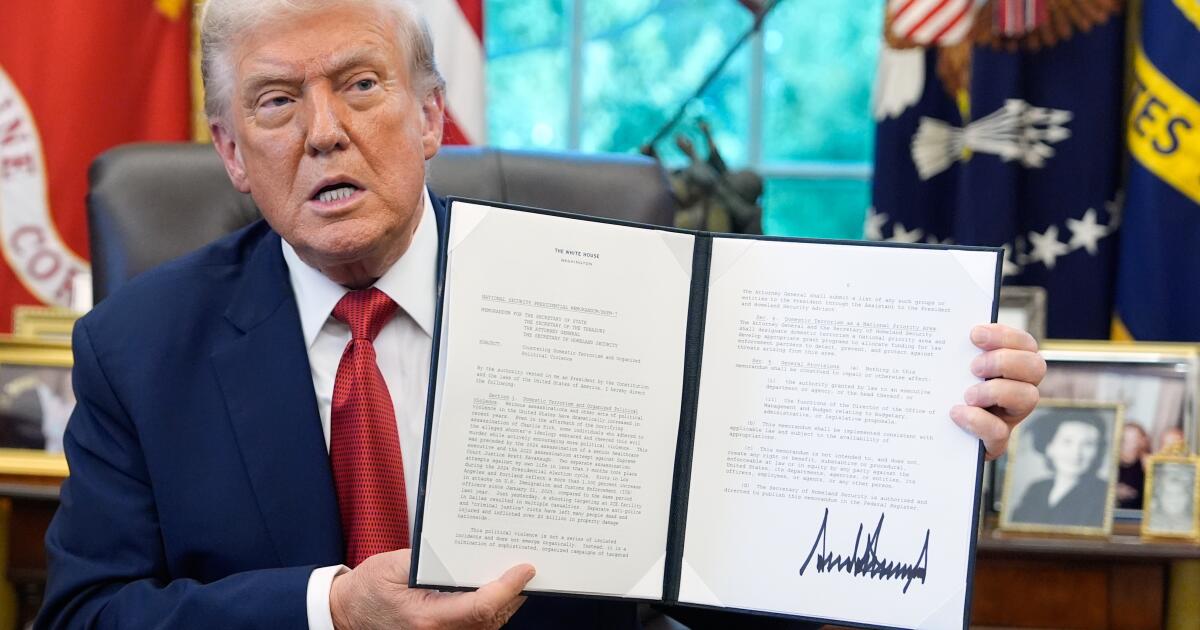UPDATE: New reports reveal that former President Donald Trump is facing increasing scrutiny over his use of emergency powers, which some experts argue may lead to unchecked authority reminiscent of historical dictators. This urgent issue has surfaced as Trump recently declared a trade imbalance a national emergency, a move that is raising alarms among political analysts and lawmakers.
As of July 2023, Trump’s assertion of power under the International Emergency Economic Powers Act (IEEPA) has drawn sharp criticism for potentially undermining the principles of American democracy. Authorities emphasize that historically, such powers are granted during crises, not as a means of consolidating power for personal or political gain.
In a striking example, Trump has leveraged this alleged authority to impose tariffs on Canada, citing a pro-free trade advertisement that references former President Ronald Reagan. This has sparked outrage, especially since the U.S. enjoys a trade surplus with Canada, raising questions about the legitimacy of labeling such actions as emergencies.
Critics argue that the real danger lies not in Trump’s actions alone, but in the systemic failures that allow for the abuse of power. As Benjamin Franklin famously stated, republics are doomed not by those who seize power, but by those who willingly grant it under the guise of necessity. This notion resonates deeply in the current political climate, where the line between emergency and authority is increasingly blurred.
In recent discussions, experts have pointed out that Trump’s legal team contends that denying the president permanent power would lead to dire consequences. This argument echoes the historical narrative of dictatorships, where leaders claim they must have unchecked power for the sake of public safety. “I must have unchecked power to keep you safe,” they argue, a sentiment that raises eyebrows in light of American constitutional principles.
The controversy extends to the Biden administration as well, with President Joe Biden attempting to leverage the COVID-19 pandemic to enact sweeping student loan cancellations amounting to $430 billion. Critics assert that such maneuvers are emblematic of a dangerous trend whereby emergency powers are misused for political objectives rather than genuine crises.
With Congress required to review presidential actions every six months under IEEPA, many are questioning why Congressional Republicans have adjusted rules that effectively hinder their ability to check Trump’s authority. This political maneuvering raises alarm bells about the future of democratic governance in the United States.
As these developments unfold, the implications for American democracy and the balance of power are profound. The continuous expansion of presidential authority not only impacts trade policies but also poses significant risks to the democratic framework established by the nation’s founders.
What happens next? Observers are urging citizens and lawmakers alike to remain vigilant against the erosion of democratic norms. The unfolding situation demands constant scrutiny, as the potential for abuse of power threatens the very foundation of the republic.
The urgency of this matter cannot be overstated. As citizens, it is crucial to engage in discussions about the implications of emergency powers and their potential misuse. The lessons of history remind us that vigilance is essential in safeguarding democracy from the encroachments of authoritarianism.
Stay tuned for further updates as this story develops.





































































